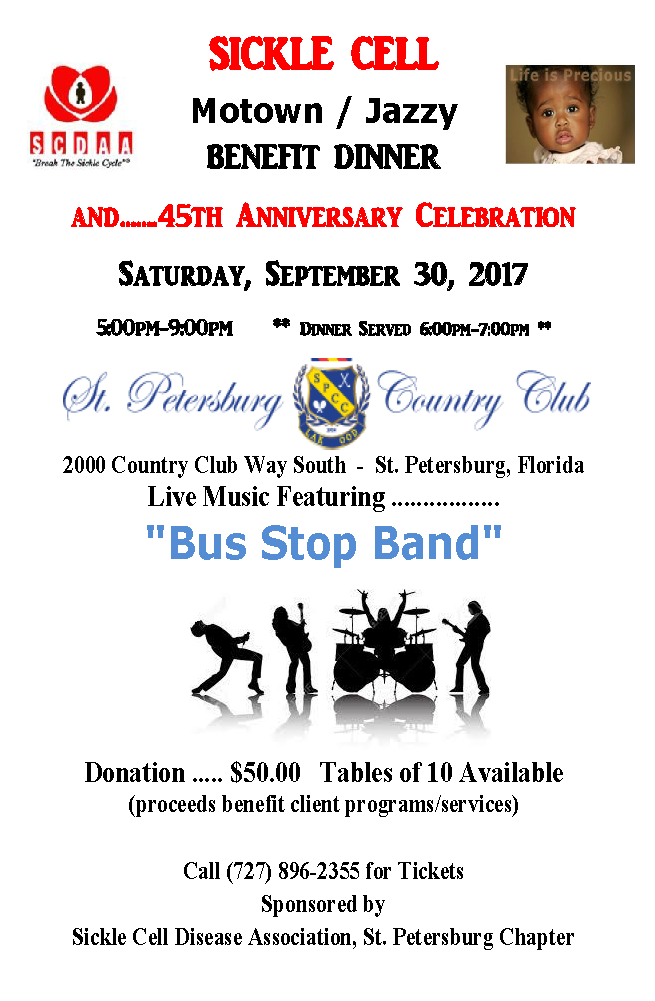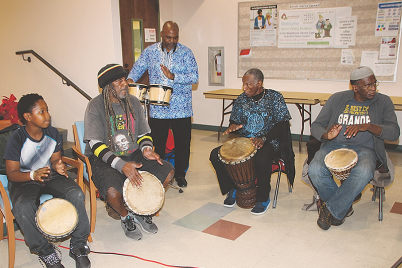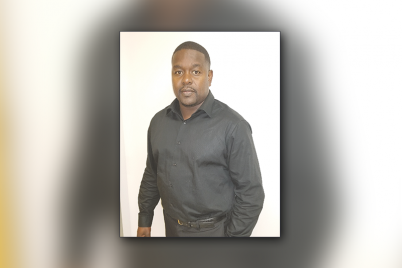ST. PETERSBURG – September is National Sickle Cell Disease Awareness Month which coincides with the Sickle Cell Disease Association St. Petersburg Chapter, Inc. 45th anniversary on Sept. 30 at the St. Petersburg Country Club, located at 2000 Country Club Way S.
The term sickle cell disease (SCD) describes a group of inherited red blood cell disorders. People with SCD have abnormal hemoglobin, called hemoglobin S or sickle hemoglobin, in their red blood cells.
Hemoglobin is a protein in red blood cells that carries oxygen throughout the body.
“Inherited” means that the disease is passed by genes from parents to their children. SCD is not contagious. A person cannot catch it, like a cold or infection, from someone else.
If a person has sickle cell disease (SCD), it is present at birth. But most infants do not have any problems from the disease until they are about 5 or 6 months of age. Every state in the United States, the District of Columbia and the U.S. territories requires that all newborn babies receive screening for SCD. When a child has SCD, parents are notified before the child has symptoms.
Some children with SCD will start to have problems early on and some later. Early symptoms of SCD may include:
-
Painful swelling of the hands and feet, known as dactylitis
-
Fatigue or fussiness from anemia
-
A yellowish color of the skin, known as jaundice, or whites of the eyes, known as icteris that occurs when a large number of red cells hemolyze









